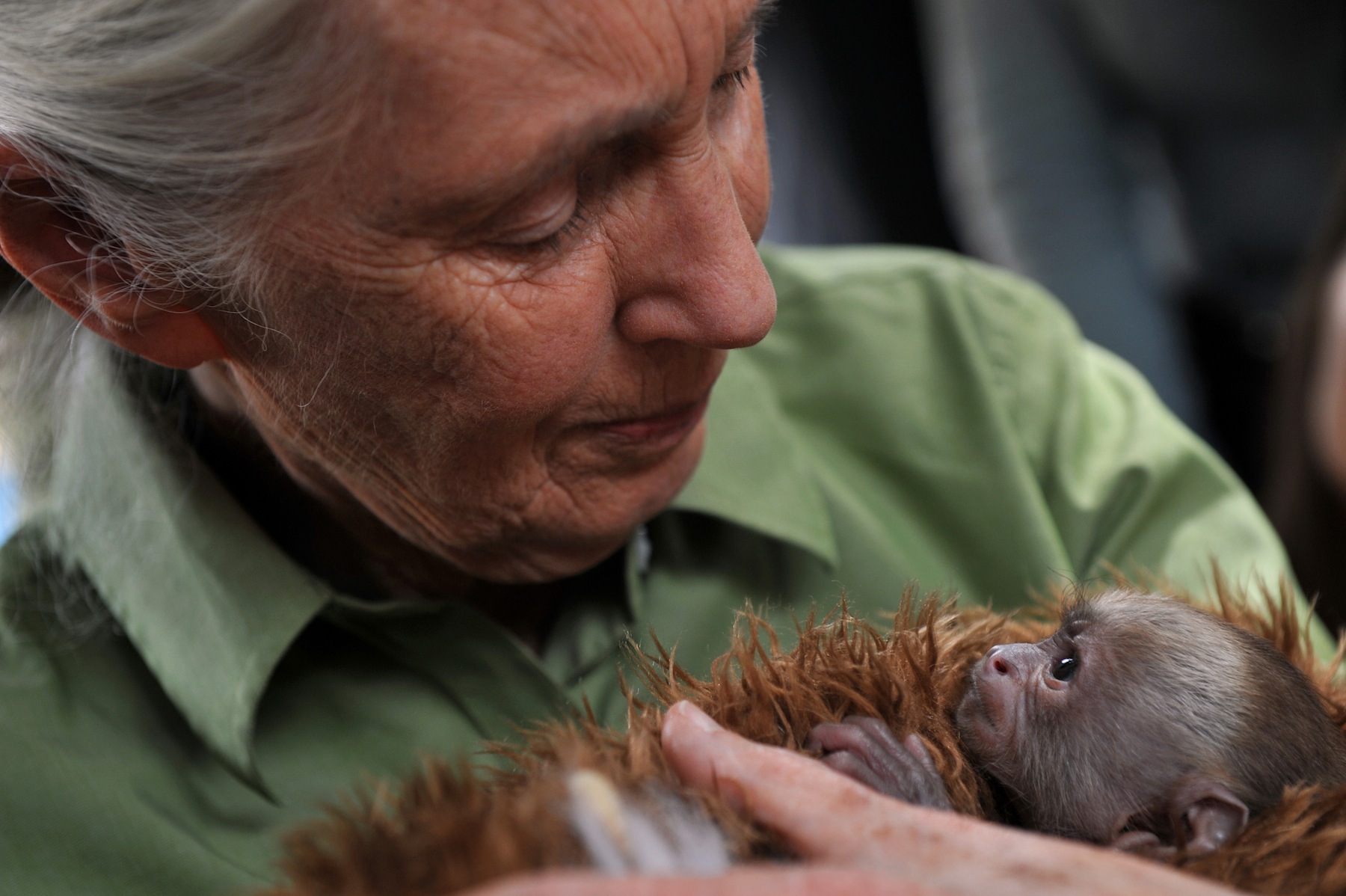
The upcoming nature film Bears, out April 18, goes heavy on the cuteness. Disney’s feature-length look at a mama bear and her two babies — the latest from the Disney Nature label, which has produced movies like Earth and African Cats — is narrated by John C. Reilly, who does voices for the bears’ inner monologues. Though the Alaskan landscapes are breathtaking and the bears themselves are (as previously mentioned) super cute, at first glance, the film doesn’t scream “science.” It’s meant for a family audience; the film explains the life of a bear in a way that’s straightforward but rated-G.
For example:
But the film’s actually got some serious environmental cred: legendary primatologist Jane Goodall, who turned 80 this month, is now serving as an ambassador for Disney Nature. Goodall believes that giving cute names and voices to baby bears can actually help save a species — and, by extension, the planet. She told TIME how:
TIME: Do you have any involvement with the actual filming of the Disney Nature movies?
Jane Goodall: Not much. The reason that I agreed to [be an ambassador for Disney Nature] is because I think that these films they’re making are so very important. They’ve spent the time with the animals, they really get to know them as individuals, and it’s very, very important for the general public to understand as much as possible about a lot of these creatures — because we’re going to need help from every quarter to save them. The grizzlies and the brown bears — people have worked really, really hard to bring their numbers back after years of persecution. Now there’s a threat of de-listing them [from the Endangered Species List], which means people could hunt them again, and I’m hoping this film will inspire more people to comment, if that happens. Most people don’t have time to go and spend two years watching a mother bear and her cubs, but Disney did.
In your own career, you’ve named the animals with which you worked, and you were sometimes criticized for it. How do you feel about the anthropomorphizing of the bears in this movie, giving them names and personalities?
First of all, they didn’t give them personalities. When I first talked about the chimpanzees back in 1960 having personalities, minds capable of thoughts and emotions, I was told that this was wrong, that that was unique to the human animal. But I learned as a child from my teacher that the professors who told me that were wrong. That teacher was my dog. You cannot share your life in a meaningful way with a dog, a cat, a rat, a horse — I don’t care what it is — and not know that animals have their own personalities. They’re all different one from another and they have many qualities that they share with us, like emotions. So of course the bears haven’t been given a personality. They have one. And you couldn’t possibly make a film or write a book about animals without names. It just wouldn’t make sense.
How do the names affect what people will take away from the movie?
What it adds is that they do all have different personalities. If you give them a cold number you might, and almost certainly would, notice the personality — and the name doesn’t have to reflect the personality — but quite honestly, when people say you shouldn’t have empathy with the animals you study — when they say that to a scientist, I say it’s the lack of empathy that’s led to some extremely unpleasant scientific inventions. We have to have head and heart, intelligence, intellect and love and compassion working in harmony.
It seems like you’re optimistic about the future of the planet and animals, based on the titles of your recent books, like Seeds of Hope and Hope for Animals and Their World and Harvest for Hope…
The hope part has got a big “if” or “but” to it. A lot of scientists believe we’ve gone too far in destroying the environment and nothing can prevent ecosystem collapse. I know that we’re on that path, we’re moving in that direction. I still believe that we can slow it down and ultimately start reversing it. But we have to change attitudes. We have to have people who understand. And we do have much greater awareness around the world. I travel all over the world 300 days a year so I know. It’s partly to do with the Internet, but more and more people understand that we have problems.
But they’re not changing their behavior. That’s the big problem. There’s so much apathy. And why is that? That’s because people look at what’s happening and they feel helpless. They don’t know what to do so they do nothing. The main message is that each one of us makes a difference every day. There’s billions of us so when billions of people start making the ethical decision as to what they buy and wear and so forth, then we can start putting the world on the right track.
In the course of your career, have attitudes toward nature changed? Are we thinking about nature in a way we didn’t used to?
I think we are. But as I say, we need to not only think about it in a certain way, but also do something about it.
More Must-Reads from TIME
- Cybersecurity Experts Are Sounding the Alarm on DOGE
- Meet the 2025 Women of the Year
- The Harsh Truth About Disability Inclusion
- Why Do More Young Adults Have Cancer?
- Colman Domingo Leads With Radical Love
- How to Get Better at Doing Things Alone
- Michelle Zauner Stares Down the Darkness
Write to Lily Rothman at lily.rothman@time.com